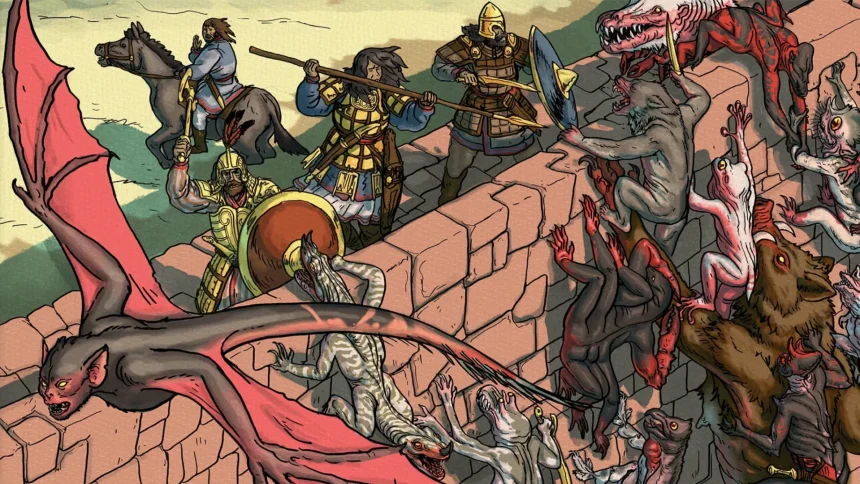“Barbarian immersion therapy” refers to the experience of playing Six Ages 2: Lights Going Out, a strategy RPG set in a mythological world on the brink of apocalypse. Unlike typical RPGs, where players often reload saves to avoid unfavorable outcomes, Lights Going Out encourages players to embrace chaos and accept the consequences of their decisions without the safety net of constant reloading.
In this game, you lead a tribe of Bronze Age barbarians in a desperate struggle for survival as the world collapses around them. The narrative is steeped in myth, magic, and the constant threat of doom, where even the gods have abandoned you. The gameplay is heavily influenced by random events and dice rolls, which shape the fate of your tribe more than traditional stats or modifiers do.
For players accustomed to save-scumming (constantly reloading saves to achieve optimal outcomes), Lights Going Out presents a stark departure. It forces players to endure setbacks and adapt to unexpected challenges, mirroring the unpredictable nature of life in its fictional world.

This approach turns what would typically be frustrating setbacks into opportunities for narrative and character development, fostering a deeper immersion in the game’s lore and thematic elements.
The game’s world-building plays a crucial role in supporting this gameplay philosophy. Set in Glorantha, a world where life is fragile, and catastrophe is commonplace, the game encourages players to adopt a resilient and fatalistic mindset akin to its barbarian protagonists. Rather than viewing every failure as a game-ending mistake, players learn to appreciate setbacks as integral parts of their tribe’s story and evolution.
Despite its unforgiving mechanics, Lights Going Out manages to make repeated failure engaging and even enjoyable. It challenges players to find satisfaction not in perfect outcomes but in the narrative richness that emerges from navigating through constant adversity.
This thematic depth, combined with its tabletop RPG-inspired design, encourages players to embrace the unpredictability and whims of fate that define both the game and its mythological setting.
Ultimately, Six Ages 2: Lights Going Out serves as a profound lesson in relinquishing control and embracing the journey, no matter how tumultuous. By immersing players in a world where chaos reigns, and survival is a constant struggle, the game offers a unique form of “immersion therapy” that reshapes player expectations and celebrates the beauty of imperfection in storytelling and gameplay.







